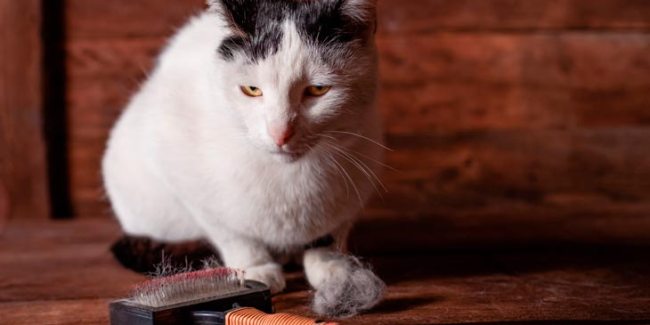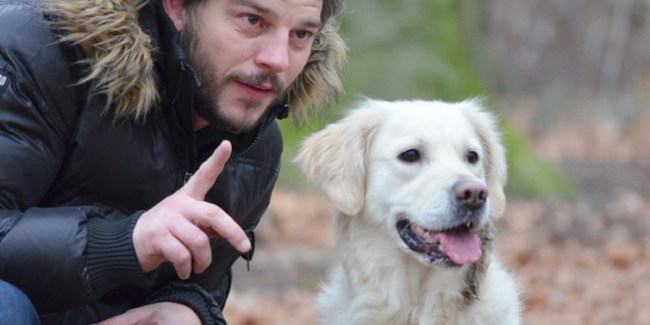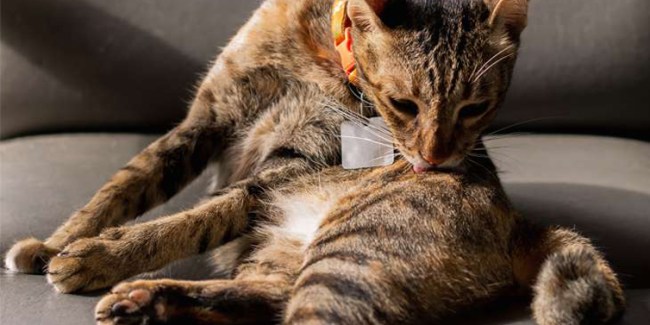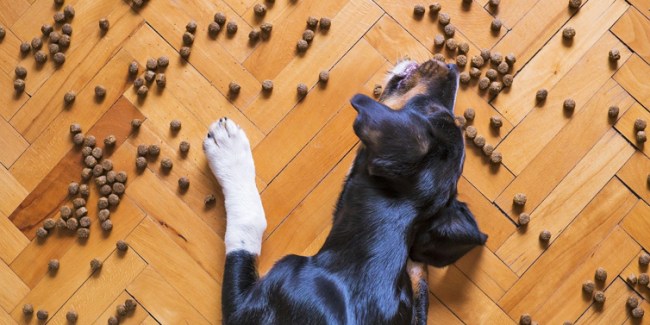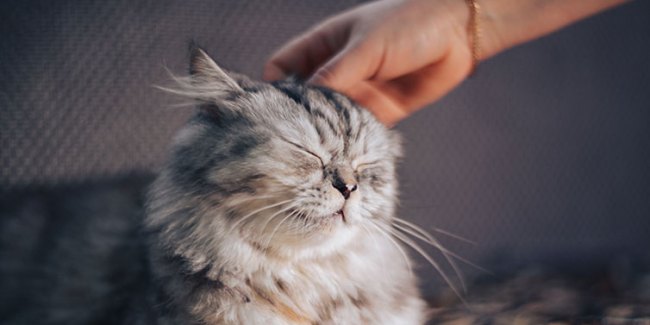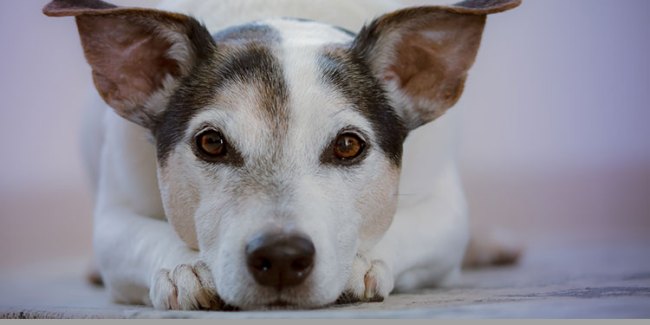Furry Friends in Winter
As we all know, winter in our beautiful country can present us with great variations in temperature depending on where we live. It can vary from pleasantly cool to freezing and below. Winter nights in the Karoo can dip to well below freezing; in KwaZulu Natal it gets cooler but is still warm on the coast whereas the Berg is freezing; on the Highveld it can drop to below freezing on some nights, while the Cape is generally cold and wet.
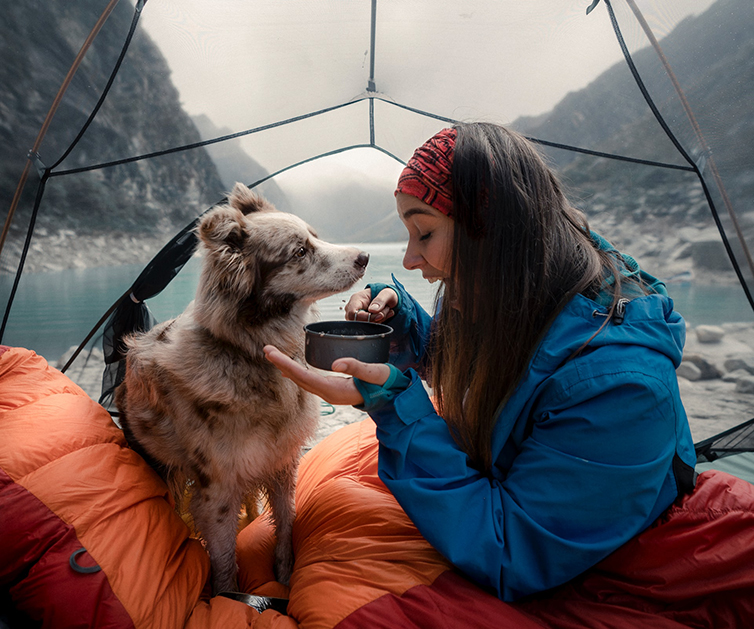
So, most of us check our winter wardrobes, haul out the blankets and winter duvets and dust off the heaters. With the power cuts, we cannot rely on electric heaters at certain times, unless we have inverters or alternative sources of power, so for this winter at least, the message is to wrap up warmly and ‘Be Brave’.
We are South Africans! We can do this!
However, we need to remember that our pets cannot. They can’t tell us that they’re freezing cold (unless they give us a hint by huddling in a corner, teeth chattering) and they can’t do anything about it. Did you think, as many people do, that their furry coats are enough to keep them warm? Some people say: ‘Animals in the wild don’t have fancy kennels, beds and coats. Why should my dog/cat need them?’
Well, because animals in the wild have evolved and are evolving to cope with extremes of climate in their native lands. Our animals have been domesticated and some have been specially bred or exported from their natural habitats, so they no longer necessarily have the genetic protection of their wild ancestors.
It is up to you, as pet parents, to provide them with some protection against the elements, the same as you provide them with food and water, so that they remain happy and healthy during the winter months.
We have, as always, done the research for you, so here are our suggestions. These will, of course, largely depend on the region in which you live. We have tried to cover both doggie and kitty companions in our advice, where relevant.
Remember our mantra:
IF IN DOUBT, CONSULT YOUR VET!
The sad and horrifying fact is that many animals are left outside to face the elements, whatever the weather, without shelter or blankets to help keep them warm. In very cold weather, they face the danger of frostbite and hypothermia, which, apart from causing extreme suffering, can result in death.
The SPCA issues strong warnings to animal owners that not providing appropriate shelter for these animals is a criminal offence as it amounts to animal cruelty. They also request that if anyone is concerned about the well-being of any animal, they should notify the SPCA.
This includes animals who live outside for a reason, for example, guard dogs. They should at least be provided with kennels and blankets, particularly when temperatures drop. If possible, they should be brought inside in freezing weather.
How can I prepare my canine or feline friend for a cold winter?
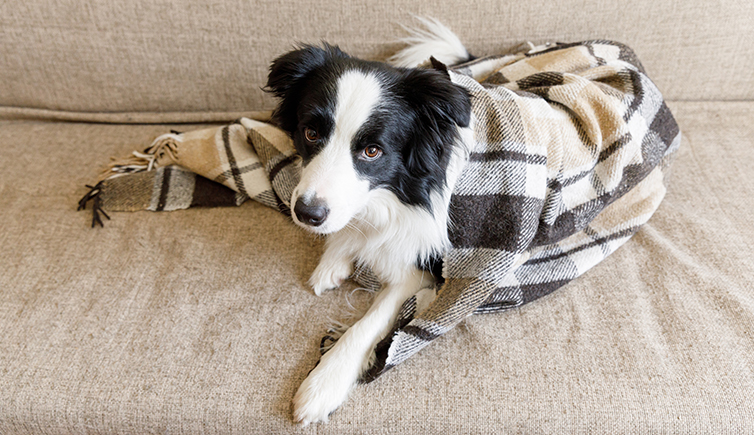
You are absolutely right to ask this question as ‘prevention is better than cure’.
- First of all, and especially if your furry companion has any health issues, is very young or getting on in years, we suggest that you take him/her for a check-up with your vet in autumn. Cold weather can make some health conditions worse, such as arthritis, diabetes or heart disease. Your vet will advise you regarding any special treatment for your pet as the weather gets colder and may prescribe supplements. For example, a doggie or kitty with arthritis (a painful disease of the joints which may become more painful when it is cold) may require additional medication during the winter months.
- You will also need to ensure that your furry’s vaccinations are up-to-date. In the winter months, vets often see upper respiratory tract infections in dogs, often in the form of canine cough, which is caused by various bacteria and viruses. Vaccination is particularly important if poochie attends a day care centre, as this infection is extremely contagious.
- Ensure that any furry friend is protected against ticks and fleas. Many people, mistakenly, believe that these little nasties are only a problem in the summer months. WRONG! In the warmer parts of our country, in particular, this is not the case. Luckily, there is a solution:
For dogs: Bravecto® Chew provides 12 weeks of tick and flea protection with a single treatment. Bravecto® Spot-On gives 4 months of tick protection and 6 months of flea protection with one application.
For cats: Bravecto® Spot-On for Cats provides 3 months of tick and flea protection with one application while Bravecto® Plus does all this as well as treats for intestinal roundworms.
Do you have any tips for me so that my pooch or kitty will have a comfortable winter?
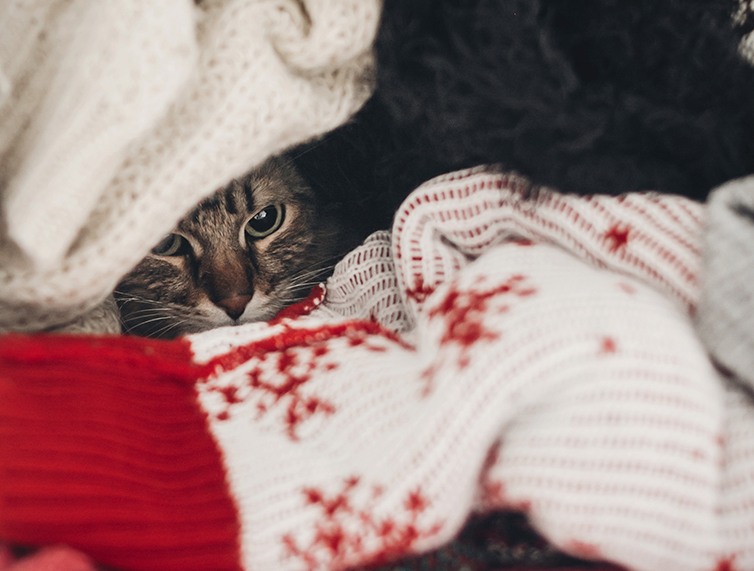
We certainly do!
- Keep Pets Indoors
Ideally, pets should always sleep inside and in very cold weather, they should stay inside all day. But ‘ideal’ is not always possible. So, let’s put it like this: if at all possible, during cold weather, all pets (especially the old, the young and the sick) should spend the nights indoors. You may need litter trays for cats and small dogs and ensure that larger dogs are let out for ‘bathroom breaks’.
- Warm Beds
Your doggo or fluff-ball will probably have a bed already but for the winter months you could add an extra blanket or pillow and make sure that the bed is in a warm part of your house. The bedding does not have to be expensive – old blankets and towels will suffice and your furry friend will be so grateful.
For the old, the sick and the young, a warm (not too hot) hot water bottle, wrapped in a blanket, would be a welcome addition during cold winter nights. You can also buy inexpensive fabric pouches filled with heat-retaining material, which you heat for a couple of minutes in the microwave and place into your pet’s bed.
If your pet doesn’t have a bed, we suggest that you consider obtaining one, especially for the cold weather. It doesn’t have to have a designer label – many cut-price shops stock very presentable pets’ beds. You could even make one out of an old sweater (you will find the instructions on youtube – see below). If possible, the bed should be lifted, even slightly, off the floor, which helps to avoid drafts.
- Increase Nutrition
We often feel more hungry in the cold weather, which is our body’s way of telling us that we need more calories. Now, before you see this as an excuse to load up on doughnuts and chocolate and feed your happy pet on fattening foods too, let’s remember: all things in moderation. Your pet will benefit from some extra-nutritious food during the cold weather and a bit more kibble will help to keep him/her warm. But please don’t overdo it and consult your vet before making any dietary changes.
- Heaters and Fireplaces
Animals gravitate towards heat in cold weather, and so do we, but heaters and fires can also present dangers, particularly for small children and pets. You should try to prevent direct access to any source of heat. This could be in the form of barriers, guards or screens. Ensure that all your heaters and chimneys are up to safety standards. Also be careful not to over-heat a room, which can be uncomfortable for pets and for you.
In areas which have no rain in the winter, a humidifier (or even put out a couple of dishes of water) will help to prevent dry air, which may be especially important for pets and children who are prone to bronchial problems.
- Winter Wardrobes
Small pooches, older dogs, those with diseases like arthritis and those without thick fur, will be grateful for a warm winter coat. These are especially important for those doggos who spend a lot of time outdoors. Prices, of course, vary from the fancy, down-filled ‘puffer-jacket’ styles down to the simple fleece fabric coats. Your choice will depend on your local weather conditions (in the Cape you may need a warm and water-proof jacket for your pooch), on your dog’s lifestyle and specific needs (largely indoor or outdoor) and, of course, on your budget. A tip for puppy parents: try to get your pup used to wearing a coat from a young age. For kitty parents: you can try, but be prepared to be shredded!
- Bathing and Grooming
During cold weather you should bath your poochie as little as possible – in fact, some vets advocate not bathing dogs at all during the winter months. Shampoo (always use shampoo made especially for dogs) removes the essential oils from the skin, which keep the skin supple. This may result in dry, flaky skin, which often resembles dandruff. It is itchy and uncomfortable for your pet. If you have to bath your pet (when he/she has rolled in something disgusting) then use a moisturizing dog shampoo.
You should brush your dog’s coat regularly during the winter, to remove dust, grime and all the bits and pieces that they manage to pick up.
When you take your dog to a grooming parlour during the winter months, ask for only a trim. This is not the time for a short cut or a shave – you will be removing doggie’s natural defense against the cold, which makes no sense.
- Exercise
Try not to be tempted to reduce or stop your pooch’s walks, which provide vital exercise and help to keep him/her healthy. If possible, walk during the warmer parts of the day. Don’t forget to put his/her jacket on and wear something reflective if you have to walk when it is darker.
- Car Safety
There are two main reasons why you will need to be extra vigilant about car safety for your pets during winter months.
Cats, as we all know, seek out warmth, which some find in car engines. Before starting your engine, quickly open the bonnet to check for possible curled-up, furry bodies in there.
Leaving an animal in an unattended car is never to be recommended. We are all aware that this is dangerous in the summer but it can also be a problem in the winter. If you ‘quickly nip to the shops’, the heater from the engine is off and a warm car can quickly become very cold. This could create serious problems for puppies, old or sick dogs or cats, in particular.
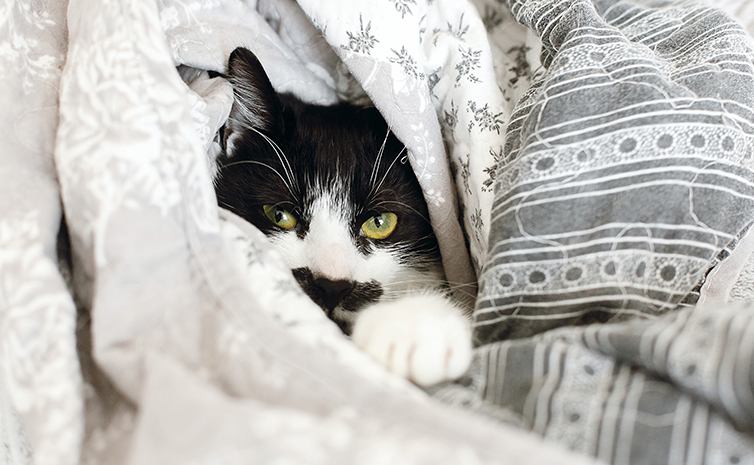
And finally …
We wish you and your furry friends, warm and wonderful winter months.
ZA-BRV-230300007
Subscribe to our Newsletter
Get to know your furry friend better! Sign up for all things dog- or cat-related.
The Hairy Facts about the dreaded hairball
12 April 2021
Help! My dog’s barking mad! Volume 2
12 April 2021
Your Itchy, Scratchy Cat – All About Cat Skin Problems
12 April 2021
The Dog’s Diet: A Bone of contention?
01 April 2021
Mango Fly Worms: How to Spot and Eliminate them
Posted on November 28,2019
Managing Mange And Mites In Your Dog
Posted on June 11,2018
Why Do Cats Purr and How? Learn What Your Cat Is Saying
Posted on October 14,2020
How to Get Rid of Ear Mites in Dogs
Posted on November 06,2019


